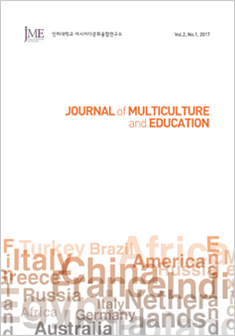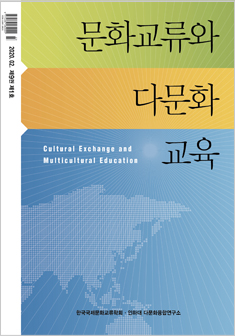
논문검색
HOME 학회지 논문검색
다문화와 교육(Journal of Multiculture and Education), Vol.6 no.2 (2021)
pp.1~18
Possibilities of Translanguaging and Plurilingualism for New Language Education in South Korea
Although the past decades have seen a rapid increase in the number of linguistically diverse children in Korea, teachers and schools are barely trained to teach and interact with these students. Further, research on multicultural education has focused mainly on Korean language education while paying far too little attention to language diversity. Stressing that language issues are one of the most critical challenges to Korean multicultural education, this article aimed to suggest translanguaging as an alternative, promising pedagogy for both mainstream and diverse classrooms in Korea. In doing so, I first introduce the concept of translanguaging in terms of its background, definitions, and key issues such as plurilingualism, multilingualism, transgression, and linguistic repertoire. Second, I explore the possibilities and limitations of translanguaging for its implementation in Korean classrooms. This new paradigm of language education views multilingual individuals as having an integrated identity and supports various types of transgressions between languages and beyond. This article thus suggests that, despite some obvious challenges, translanguaging has the potentials to advance Korean multicultural and multilingual education in that it deconstructs the deep-rooted ideology of monolingualism reflected in Korean language education research and policies.
 다문화와 교육(Journal of Multiculture and Education)
다문화와 교육(Journal of Multiculture and Education) 문화교류와 다문화교육
문화교류와 다문화교육